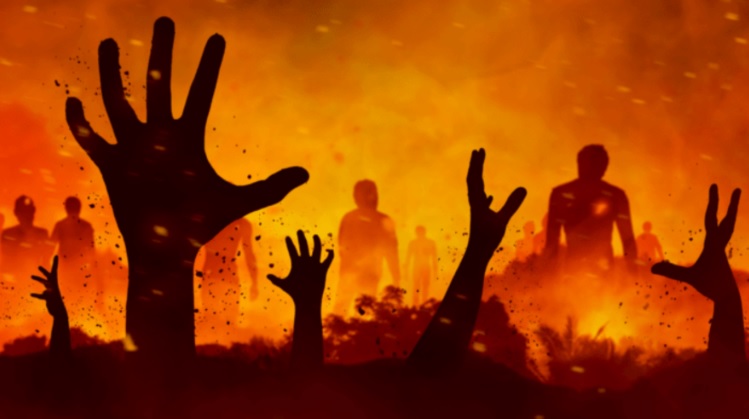Daniel 12:2
“E muitos dos que dormem no pó da terra ressuscitarão, uns para vida eterna, e outros para vergonha e desprezo eterno.”
O Inferno, também conhecido como lago de fogo é um lugar de separação de Deus e de eterno sofrimento. Foi feito originalmente para satanás e seus demônios, mas foi disposto para aqueles que, tendo a oportunidade de ouvir a verdade, preferiram crer na mentira. Ignorar o sacrifício de Cristo é fechar os olhos para o amor de Deus.
O salvo, aquele que crê em Cristo nunca se perderá, mas o que não crê já está condenado, conforme vemos em João 3:18 “Quem crê nele não é condenado; mas quem não crê já está condenado, porquanto não crê no nome do unigênito Filho de Deus.”.
Mas Deus, em sua perfeita justiça, nos deu tempo e nos enviou milhares de servos fiéis para que possamos ouvir o evangelho da verdade. Veja o que diz em João 5:24 “Na verdade, na verdade vos digo que quem ouve a minha palavra, e crê naquele que me enviou, tem a vida eterna, e não entrará em condenação, mas passou da morte para a vida.”. Ainda há tempo.
